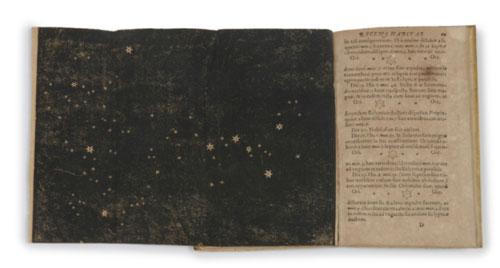Alleged Ponzi Scheme Treasures Head to Auction in Paris

Sidereus nuncius, by Galileo Galelei, 1610.
Another tale from the underbelly of the book world sees the light of day. On Monday, November 19, at 4pm, French auction house Artcurial will be hosting a sale of science material being dispersed from Aristophil, a fund ostensibly founded in 1990 by French insurance salesman-turned-manuscript dealer Gérard Lhéritier to invest in rare books and manuscripts. Aristophil closed shop in 2014 after authorities discovered evidence that Lhéritier was running a Ponzi scheme that fleeced 18,000 investors of roughly one billion dollars. (Esquire ran this fascinating in-depth piece on the man, his career, and how the plan unraveled.) Lhéritier was indicted for fraud and money laundering, among other charges, and awaits a court date. Now the treasures of Aristophil are being auctioned off.
Next week's sale is the thirteenth of the Aristophil archives (apparantly, worries that these items are co-owned by investors in a hedge fund are no longer so burdensome), and the first to tackle the fund's scientific materials. Items on the block are nothing short of breathtaking: a 1610 copy of Galileo's Sidereus nuncius (est. $18,000 to $30,000), a first edition of Darwin's Origin of the Species (est. $15,000 to $28,000), and even mathematician Charles de Bovelles' 1510 Géométrie en francoys, of which only three other copies of this edition are known to exist, with pre-sale estimates ranging upwards of $55,000.
Marie Curie, Albert Einstein, Emilie du Châtelet, René Descartes, the A-listers of the scientific community are all well represented here and will no doubt make for an interesting auction.















